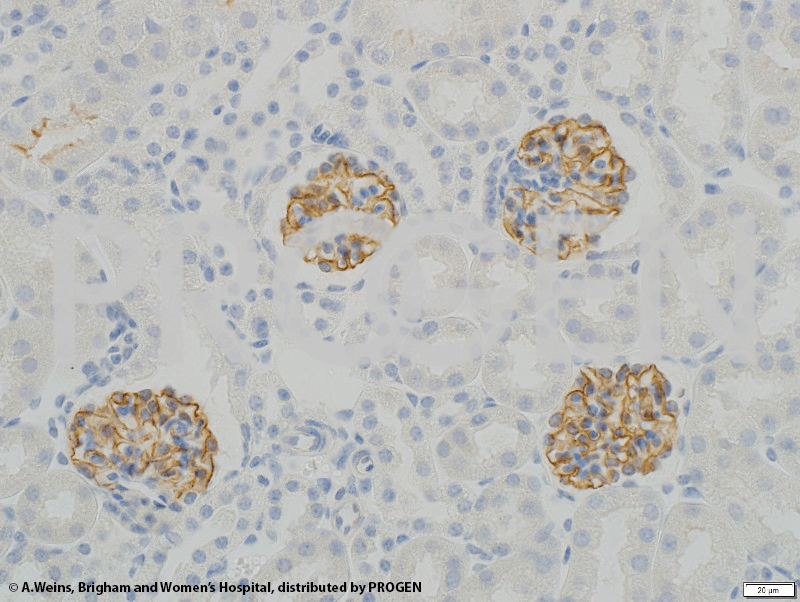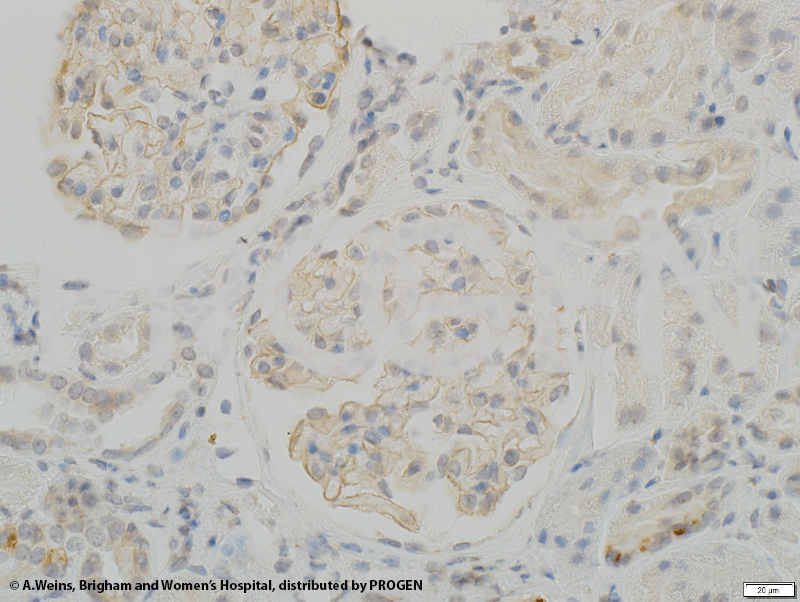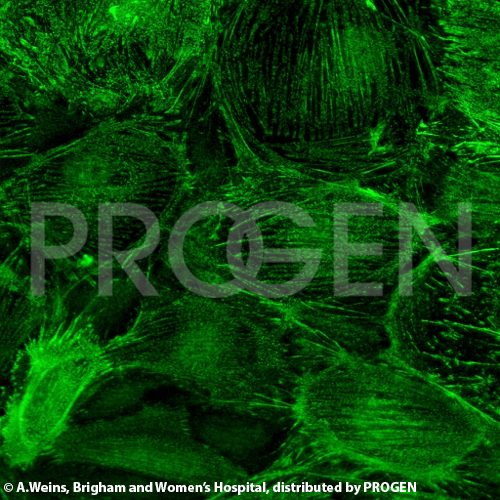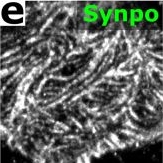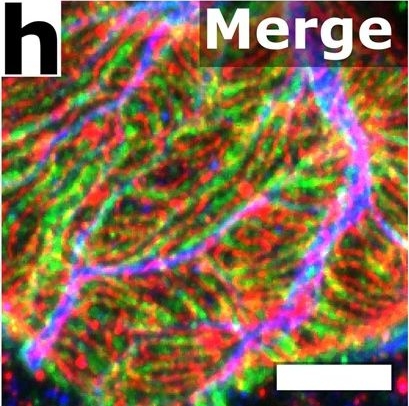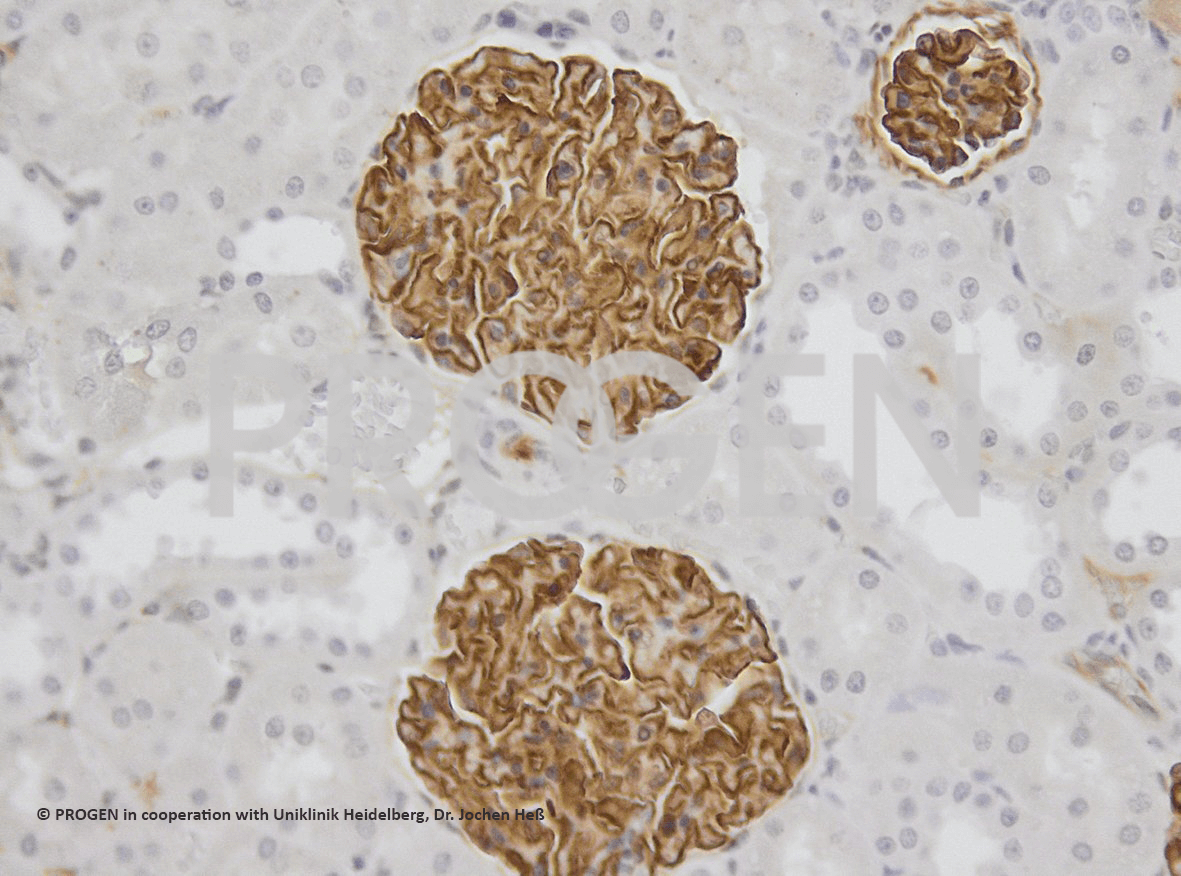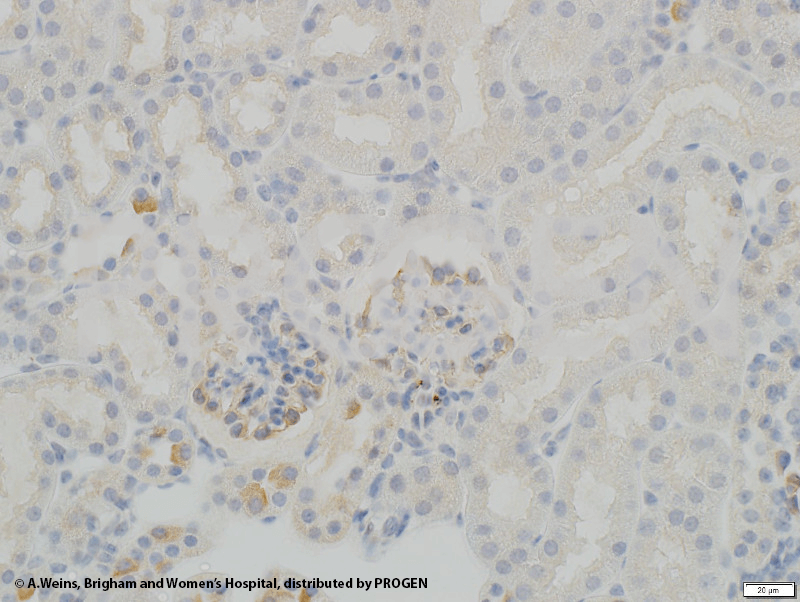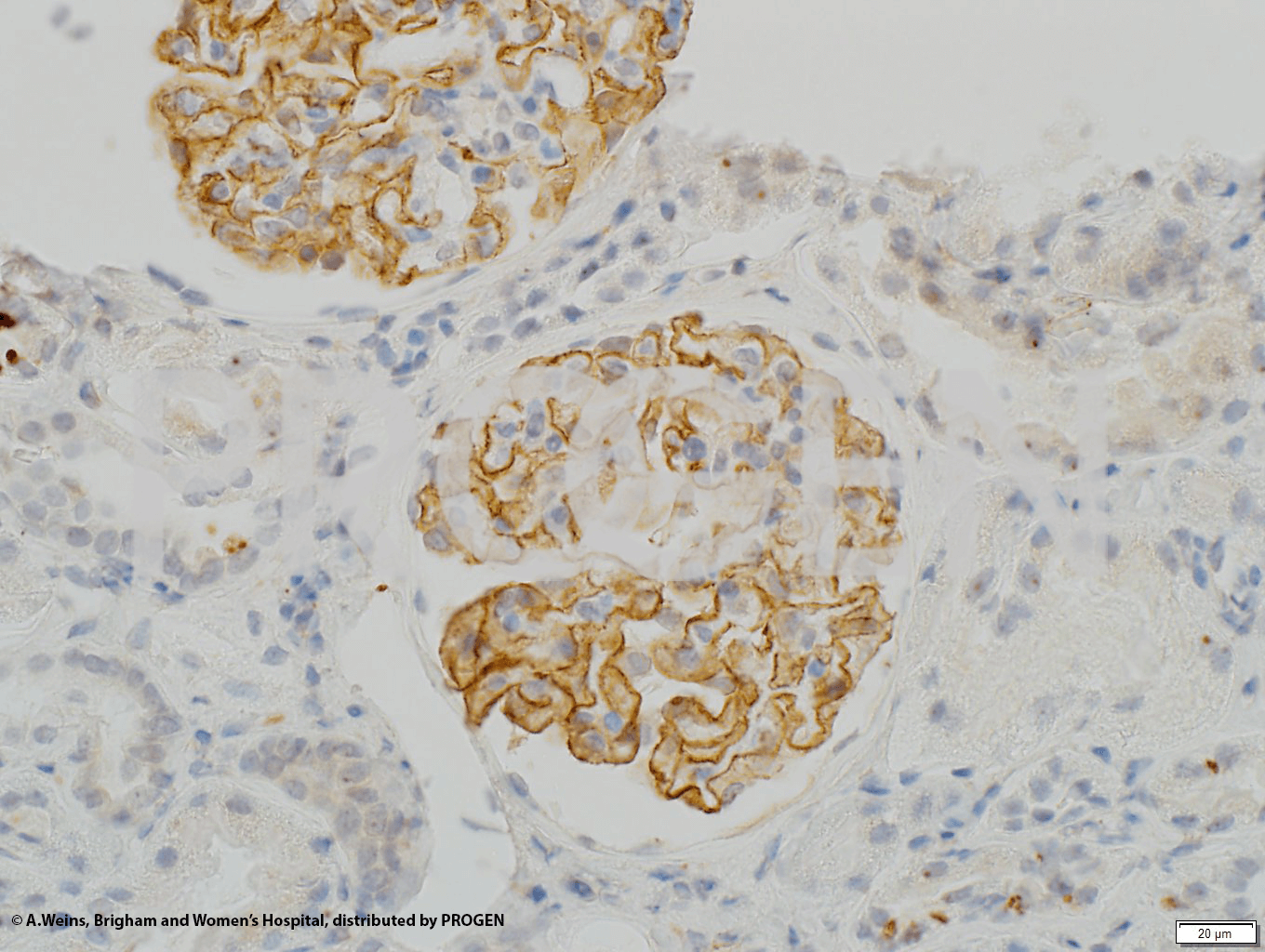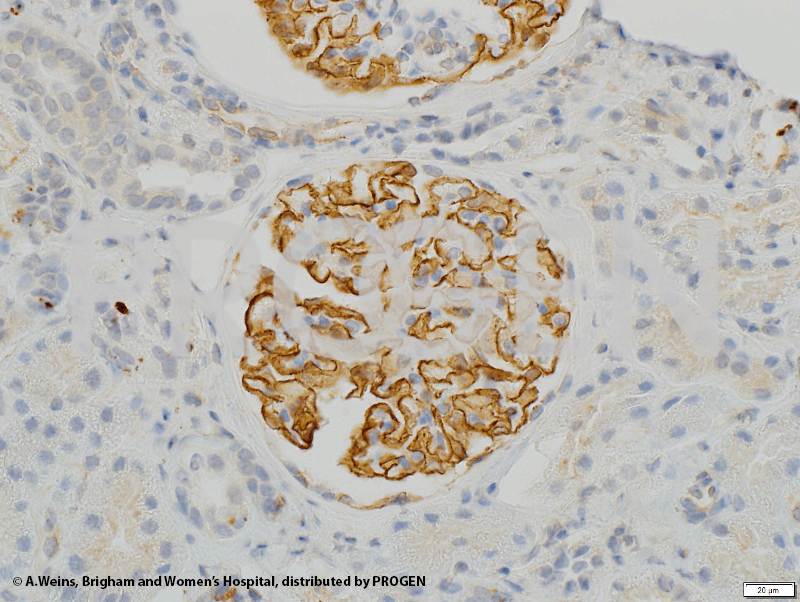anti-Synaptopodin/SYNPO (internal) guinea pig polyclonal, serum
- Guinea pig polyclonal
- Suitable for ICC/IF, IHC and WB
- Reacts with human and mouse
Product description
| Quantity | 100 µl |
|---|---|
| Antibody Type | Polyclonal |
| Host | Guinea pig |
| Conjugate | Unconjugated |
| Application | ICC/IF, IHC, WB |
| Purification | Stabilized antiserum |
| Reactivity | Human, Mouse |
| Storage | Short term at 2-8°C; long term storage in aliquots at -20°C; avoid freeze/thaw cycles |
| Intended use | Research use only |
| Immunogen | Synthetic peptides (mouse internal central sequence), coupled to KLH |
| Formulation | Contains 0.09% sodium azide and 0.5% BSA |
| UniprotID | Q8N3V7 (Human),Q91YE8 (Mouse) |
| Synonym | Synaptopodin, SYNPO, KIAA1029 |
| Note | Centrifuge prior to opening |
Applications
| Tested applications | Tested dilutions |
|---|---|
| Immunocytochemistry (ICC)/ Immunofluorescence (IF) | Assay dependent |
| Immunohistochemistry (IHC) - frozen | 1:50-1:100 |
| Immunohistochemistry (IHC) - paraffin | 1:50-1:100 (microwave treatment recommended) |
| Western Blot (WB) | 1:500-1:1,000 |
Background
The antibody reacts specifically with an epitope in the internal part of synaptopodin/SYNPO, a prolin-rich actin-binding protein with 2 binding sites for actin. Synaptopodin belongs to actin-binding pro-teins, it has first been localized in podocytes and a subset of telencephalic postsynaptic densities. In human tissue synaptopodin has a molecular weight of 73.7 kD and pI of 9.38 (calculated from sequence data); in mouse the corre-sponding data are 74 kD, pI 9.27. In SDS-PAGE the antigen appears as 100 kD polypeptide in brain and 110 kD polypeptide in kidney (attributed to posttransla-tional modifications). In Western blot analysis the antibody also reacts with a 44 kD degradation fragment of synaptopodin.
The antibody recognizes differentiated podocytes (glomerular visceral epithelial cells) in vivo and in vitro (weaker additional reaction with arterial endothelial cells), co-localization with alpha-actinin.
Reacts with a subset of exclusively telencephalic synapses. Differentiation-dependent expression during postnatal maturation of murine brain. Differentiation-dependent expression in cultured hippocampal neurons.
References/Publications (2)
Downloads
Q & A's
Customer Reviews
Login
FAQs
- PVDF membranes show better results than nitrocellulose (higher capacity, allows for more stringent washing conditions in case of background problems).
- Use freshly prepared blocking solution (e.g. 5% nonfat dry milk, 0.05% Tween 20), block for at least 1 h at room temperature.
- Use the antibody in a higher dilution, but prolong incubation time and exposure time.
- Always use a fresh aliquot of the antibody.
- Do not repeatedly freeze the antibody (eventually centrifuge shortly after thawing to remove cryo-precipitates).
- Include an additional washing step.
You might also try more stringent wash conditions, e.g. add 0.5 M NaCl to the wash buffer. - Always use a fresh aliquot of secondary antibody.
- In case you use ECL most the guinea pig antibody should be diluted further in order to get rid of the background.
The supernatant format contains FCS proteins from cell culture medium supplemented with FCS.
The serum antibodies contain other proteins present in serum.
Most of our liquid antibodies and reconstituted lyophilized antibodies may be stored for short term storage (up to 3 month) at 2-8°C. For long term storage we recommend to store the antibody at -20°C in aliquots. Please avoid freeze and thaw cycles.
Most of our conjugated antibodies should be stored at 2-8°C.
The individual storage conditions are mentioned on the datasheet.
- Methanol/ acetone fixation: Immerse slide in precooled (-20°C) methanol for 5 min, immerse in precooled (-20°C) acetone for 30-60 sec, let specimen air dry before antibody incubation.
- Methanol/ acetone fixation plus detergent permeabilization: After methanol/ acetone fixation and air-drying dip slide either in a solution containing 0.1-0.2% Triton X-100 in PBS or in 0.1% saponin in PBS for 1-5 min at room temperature (enhances accessibility of many cytoskeletal antigens).
- Air-drying of the section.
- Block with the serum of the species in which the secondary antibody was raised for 30 min.
- Incubation with 1st antibody 1 h at RT in moist chamber.
- Wash 3x with PBS.
- Incubation with appropriate fluorescent secondary antibody, 30-60 min at RT.
- Wash 3x with PBS.
- Immerse shortly into ethanol.
- Let air dry.
- Cover with mounting medium.
In guinea pigs the antibody concentration in serum varies from 10 to 20 mg/ml; specific antibodies represent normally about 0.1-1% of total IgG. Total protein concentration varies from 40 to 65 mg/ml, with the main constituent (about 60%) being albumin.

